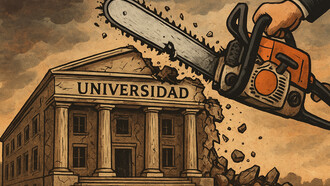Berlin is the city where I live, the place that welcomed me seven and a half years ago when I decided to move here—a choice I had already made inside myself long before. There wasn’t a conscious rationalisation of "why," it was simply that this city had always been a constant presence in my life. Since I was young, Berlin was a fascinating mystery, a promise of freedom, something that escaped tradition and convention. I've always loved this city, with its ability to surprise without ever tiring, its nature that urges you to discover new corners, new meanings, and new perspectives. Every day, Berlin teaches you to look with different eyes, to see beauty where once there was only grey, to feel life pulsing strongly behind the façades of its dilapidated buildings, in its parks, and underground clubs.
This city has a unique charm that envelops you from the very start, almost like a promise to be part of something bigger, to belong to a family that doesn’t ask who you are but welcomes you anyway. The freedom that reigns in Berlin's streets is an illusion that we all, more or less consciously, accept. But, as in any story, there comes a moment when reality hits you in the face, and that feeling Berlin gave you from the beginning—that this was your place, your home—begins to waver. You start to see another side of the city, a side you never noticed before, that you never wanted to see. And it’s a brutal encounter with another reality, one that’s never as sweet as you imagined. What you thought was the beating heart of the city becomes a barrier between you and your dream of living here.
The city has changed, and if you talk to anyone who lives here, whether German or foreign, they’ll tell you the same thing: Berlin is no longer what it used to be. This transformation has been slow but has made itself violently felt, as if a radical shift in paradigm has obliterated its essence. It seems as though the city has drifted away from what it once was, tearing apart piece by piece the soul of a bygone era.
Berlin has become a place where wealth and money are the only criteria of value, where inclusivity—once its defining feature—is slowly disappearing, giving way to an exclusivity that leaves no space for those who can’t afford to keep up. And it’s for this very reason that I want to talk today about some key aspects of this change—those critical points that are transforming Berlin from a "poor but sexy" city, a symbol of freedom and experimentation, into a place increasingly tailored for the rich and less open to those who can’t afford the luxury of living here.
Let’s take the famous phrase "Berlin is poor, but sexy" ("Berlin ist arm, aber sexy*") an expression that in the was famously said by former Berlin Mayor Klaus Wowereit in 2003 perfectly encapsulated the spirit of the city. But today, that phrase sounds out of tune, completely out of place. There’s nothing poor about Berlin anymore. On the contrary, the city has become a golden mirage for those who have the power to buy it, for those who can afford to invest in a housing market that has completely priced out the middle class. The emergence of "rich Berlin" has been gradual, but now it’s a reality we must confront every day.
The housing crisis has become one of the most divisive issues in Berlin society. The search for a home has turned into an odyssey for anyone without the financial resources to compete with the sky-high market prices. It’s no longer just about finding a place to live but finding somewhere you can truly call "home." The desperation that accompanies the search for an apartment can’t be summed up in simple words. It’s a daily frustration, a sense of powerlessness that follows you in every email you send, in every viewing of an apartment that never meets your expectations. Often, you find yourself facing a reality that forces you to make enormous compromises, to fight for every square metre. Even when you manage to secure a flat, you realise that you’re battling against a system that doesn’t seem to care about your needs.
What stands out the most, however, isn’t just the incredible rise in rent prices—which now verge on the impossible when compared with the wages of a large part of the population—but the fact that so many flats have ended up in the hands of real estate companies based in tax havens, where the word "taxes" is unknown. This has driven prices even higher, causing the city to lose its soul and become a collector’s item for those with pockets deep enough to buy it. This process has made Berlin a place that feels less and less human, more like an exclusive playground where only those with the right resources can afford to play.
The chaos in the housing market has had immediate repercussions on communal spaces and clubs that once defined Berlin’s culture. Many of these iconic places have been forced to close due to economic pressures, increasingly speculative urban policies, and the growing criminalisation of nightlife. If this trend continues, we’ll see many more shut down by the end of this year. In their place, new residential buildings are constantly springing up, but they’re soulless, tiny apartments with absurd price tags: for example, €1,200 for 24 square metres. This reality shows how the city is changing, not for those who live here but for those who can afford to be part of a completely different reality.
What’s happening to Berlin is a radical transformation that is erasing what made it special—the fusion of poverty and beauty, inclusivity and freedom that always defined it. The Berlin we loved, the one that was a refuge for everyone searching for a place to be themselves, is becoming an increasingly exclusive place, tailor-made for those who can afford to stay. And as the city transforms, we, who love and live it, must come to terms with this new reality.














